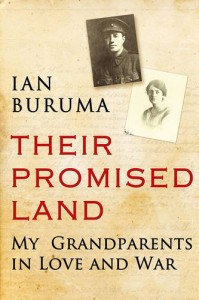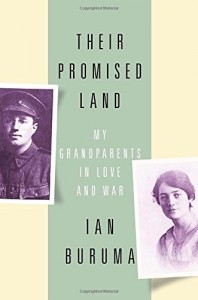 My Grandparents in Love and War
My Grandparents in Love and War
Published by Atlantic Books, 3 March 2016/Penguin Press US
320pp,hardback, £18.99/$27
Reviewed by Jessica Mann
All of Ian Buruma’s great-grandparents were Jews and all but one was born in Germany. In the late nineteenth century they moved to England where they prospered and became assimilated. This book tells the story of Buruma’s grandparents, Bernard and Winifred (always called Bun and Win) Schlesinger, whose correspondence over decades makes a detailed record of the lives of a family of more-English-than-the-English Jews. They did not practice the Jewish religion but never converted to Christianity either. They wished to be accepted as what they genuinely were, ‘Loyal citizens steeped in the cultures they had made their own.’
The letters begin in 1915, when both were still at school. It was nine years before they could be married. Win went to St Hilda’s College, Oxford and then returned home to do nothing much. Bun had to qualify as a doctor. At last he sat the final exams in 1924, upon which they got married and the correspondence lapses. In 1939 Bun returns to service, and the exchange of letters gets going again. Initially he is posted to a casualty clearing station in Hampshire. Next he is in Norway and then he is back in various parts of Britain; in 1942 he is sent to India, returning with the rank of Brigadier in July 1945.
Ian Buruma fills in the gaps when there were no letters. Five children are born; the family moves out of London to Berkshire; Bun and Win sponsor a
dozen German Jewish refugee children, specifying that those who came should not be from orthodox homes. The Schlesingers were and would always be Jewish, but that word did not necessarily have anything to do with religion.
The experience of more or less blatant anti-Semitism was inevitable, though of course the prejudice, however hurtful, was a mere pinprick compared with the experiences of other European Jews. Bernard was a distinguished doctor, but knew that as a Jew he would never get a job at certain London hospitals. This was expressed as patients might not like to be treated by someone who seemed a little foreign.’
Offensive though that sounds, similar remarks were a part of life in Britain during much of the 20th century. Win herself remarked that, ‘the London School of Economics is full of dagoes and Communists.’
This very personal story, written as an act of piety by a grandson, will strike most readers as unfamiliar, interesting and even moving. It is one that I cannot review dispassionately. Like Bun and Win, I am the child of first-generation (non-practicing) Jewish immigrants – actually, refugees – from Germany; like Bun and Win I was brought up to be, and still remain, passionately patriotic; and my family, like Ian Buruma’s, became in many ways more English than the English.
His grandparents’ story is told with loving, careful detail. It is unique, and at the same time universal, and, at least for me, infinitely recognizable.
